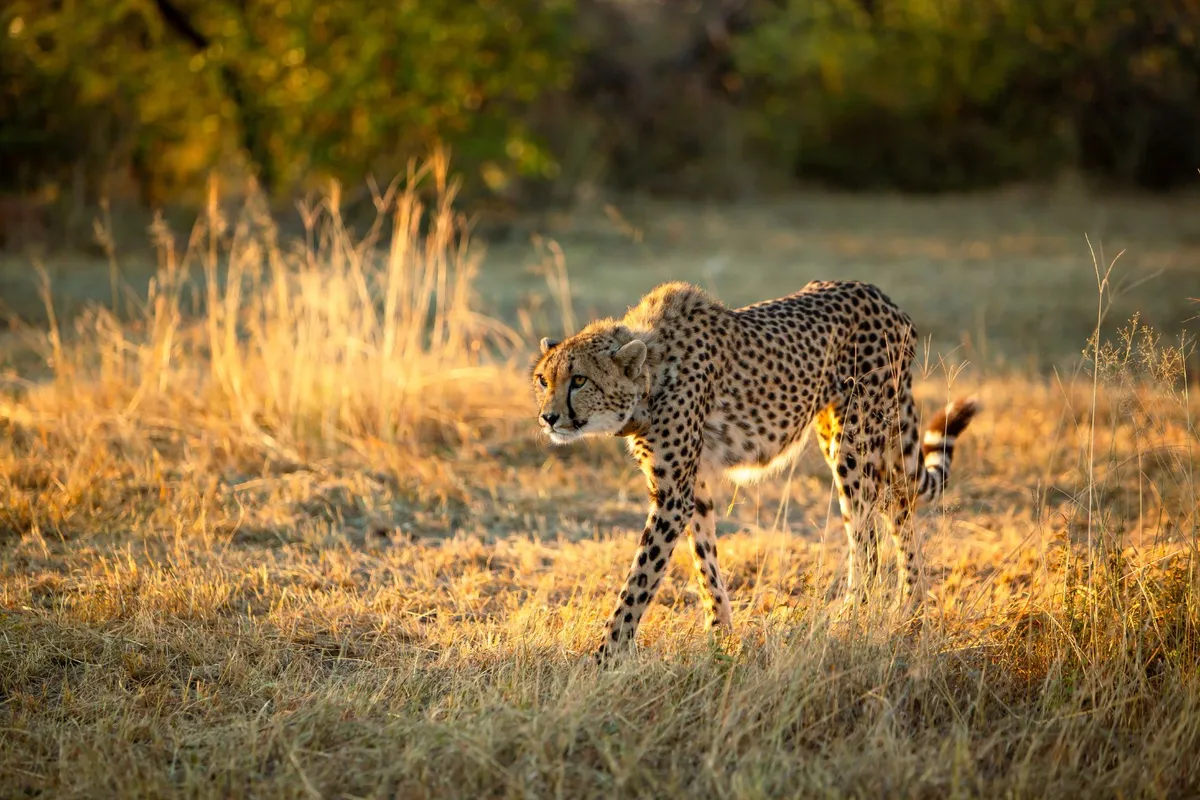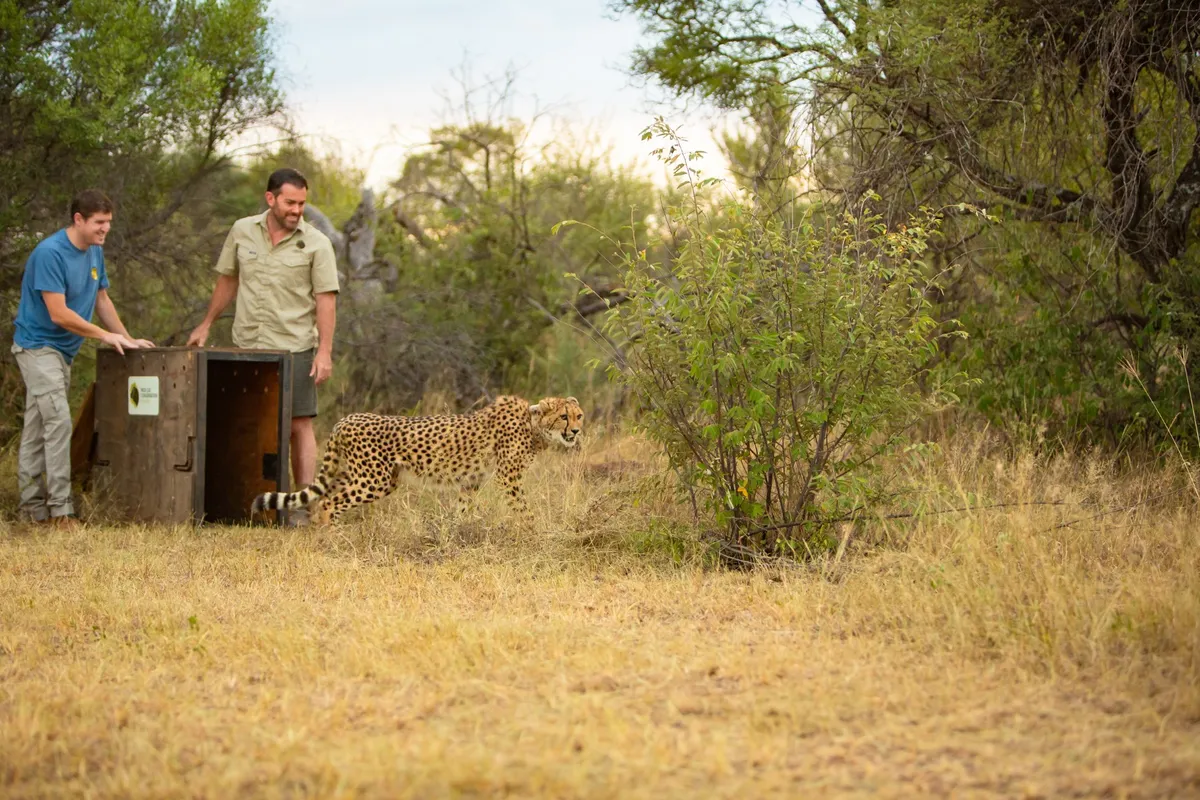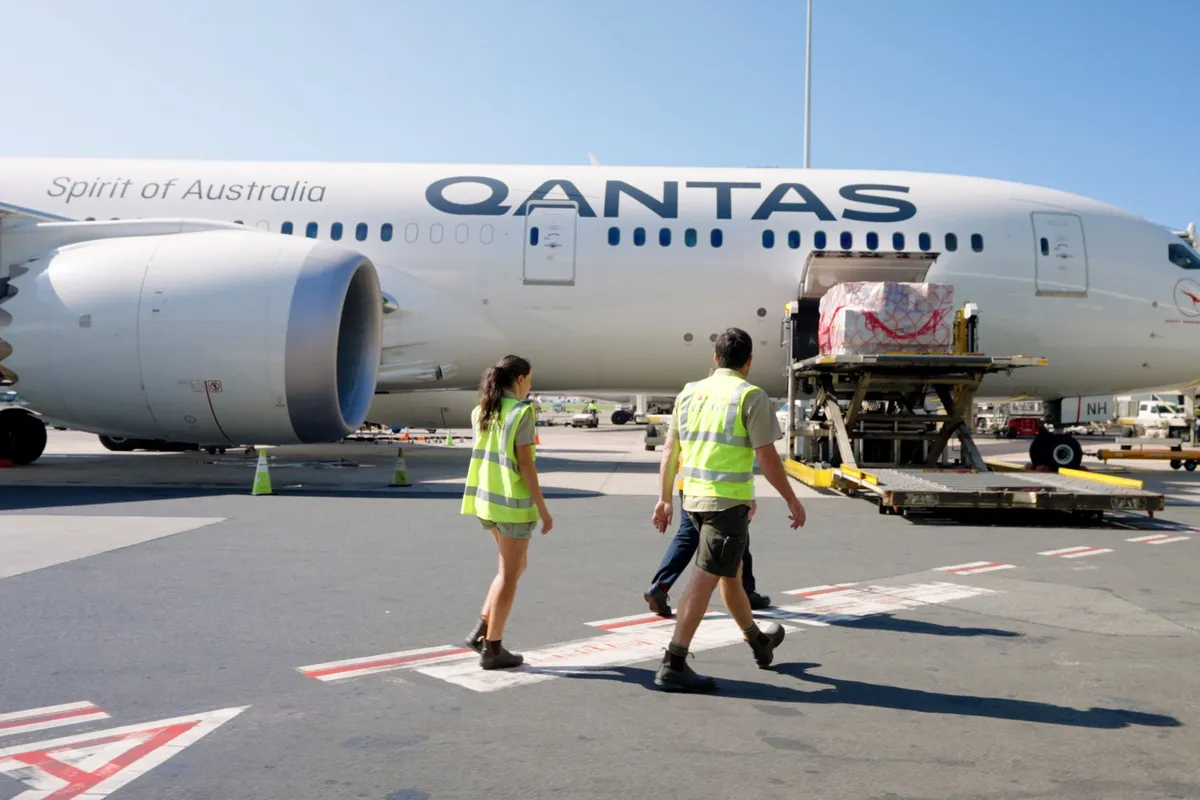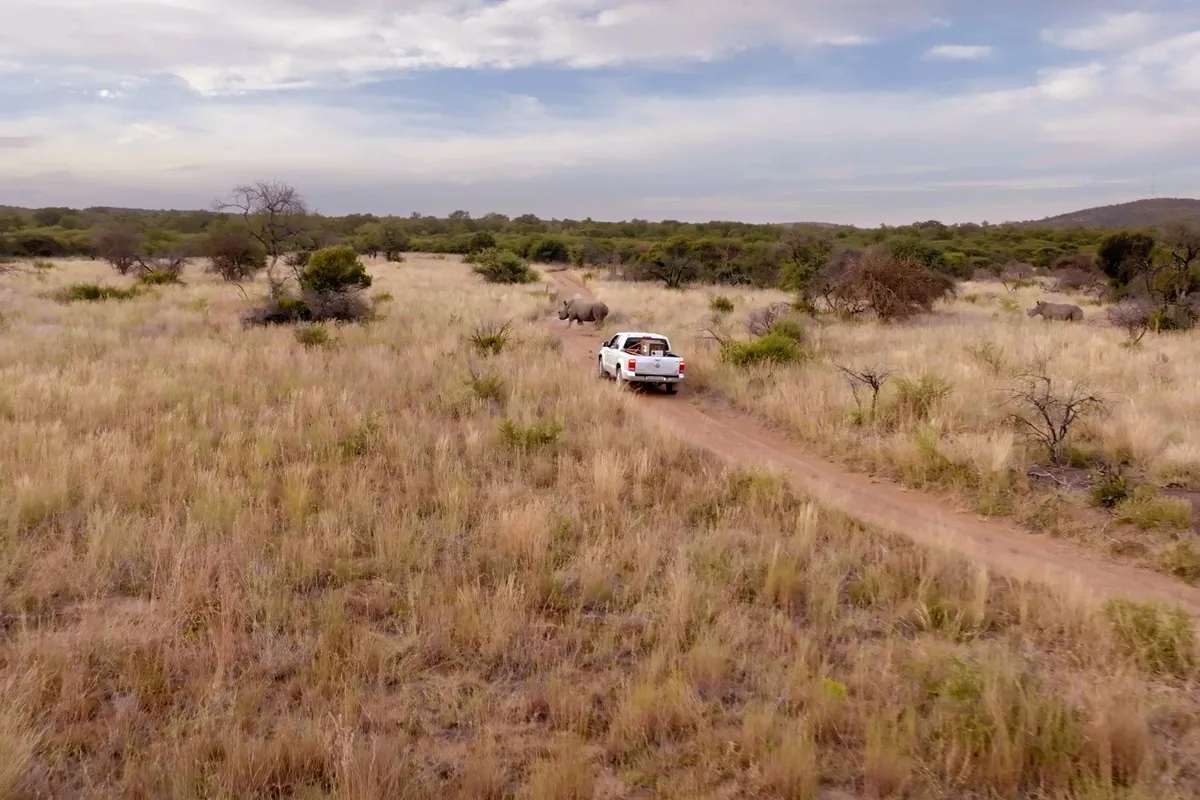Edie, a 1.5-year-old cheetah cub born at the Wild Cat Conservation Centre in Sydney, Australia, is settling into her new home in South Africa’s Mziki Private Game Reserve.
Born in September 2022, she’s the first ever Australian cheetah to be translocated to Africa, where she’ll live in the wild.
The translocation was a partnership between the Wild Cat Conservation Centre, WeWild Africa (sister NGO of The Aspinall Foundation), The Metapopulation Initiative and Mziki Private Game Reserve.
- Cheetah guide: how fast can they run and other species facts
- Cheetah vs leopard: what's the difference?
- Deadliest apex predators
The process of relocating Edie to the wild started with preparations at the Wild Cat Conservation Centre to develop her fitness, alter her diet and hone her predatory skills, with a second phase in Africa to adjust to changes in the climate, prey and other conditions.
"Cheetahs have innate predatory skills that need time to be honed, and they need to learn how often to hunt, rather than wasting time and energy hunting too often,” explains Tony King, Conservation and Reintroduction Coordinator for The Aspinall Foundation.
“They also need time to learn and develop appropriate muscle strength, to feed on tough intact carcasses, rather than on butchered meat that’s usually provided in zoos.”

Cheetahs are listed on the IUCN’s Red List of Threatened Species as Vulnerable and decreasing. It’s estimated that around 7,000 remain in the wild, with 90% of the global cheetah population lost over the last century, largely due to habitat loss, human-wildlife conflict and poaching.

The Aspinall Foundation has previously released numerous cheetahs from captivity, including from Canada, the UK and within South Africa, into the wild.
Selecting the right location is key to any captive-born cheetah’s survival.
“We would not release zoo-born cheetahs into reserves with populations of lions or hyenas, or with high densities of leopards, as these are major predators, even of wild cheetahs,” says King. “We wouldn’t expect zoo-born cheetahs to have much chance in such a context. Site selection is crucial, as is ensuring a dedicated team is constantly on hand to monitor and manage the process.”

With the number of both cheetahs and safe spaces reduced, it’s seen as critical to increase the genetic diversity of free-ranging cheetah populations within protected areas or reserves by bringing in animals with different DNA sequences.
“Every managed metapopulation requires the highest level of genetic diversity as possible, so collaborations with unrelated populations are crucial to long-term population vigour,” says King.
“Edie is the first cheetah reintroduced to this reserve, but as part of the Cheetah Metapopulation Initiative she is contributing unrelated genetics to this wider population. We’ve already seen this in action through the successful breeding of a relocated male cheetah born at Port Lympne in the UK, who’s not only a successful father in South Africa but also a successful grandfather. A genetic study illustrated that he was contributing novel genetics to the South African metapopulation, improving the genetic diversity of the metapopulation and consequently increasing its capacity to adapt and survive in the long-term.”
Conservationists will be hoping for cubs from Edie in future.

“The Metapopulation Initiative will bring in appropriate males, probably two initially, to breed with Edie,” King says. “It’s those future cubs, and their cubs, that will ensure the legacy of spreading Edie’s genetics across the southern African metapopulation. And we will have also provided Edie – a wild animal, let’s not forget – with a chance of a life in the wild.”
You may also be interested in: